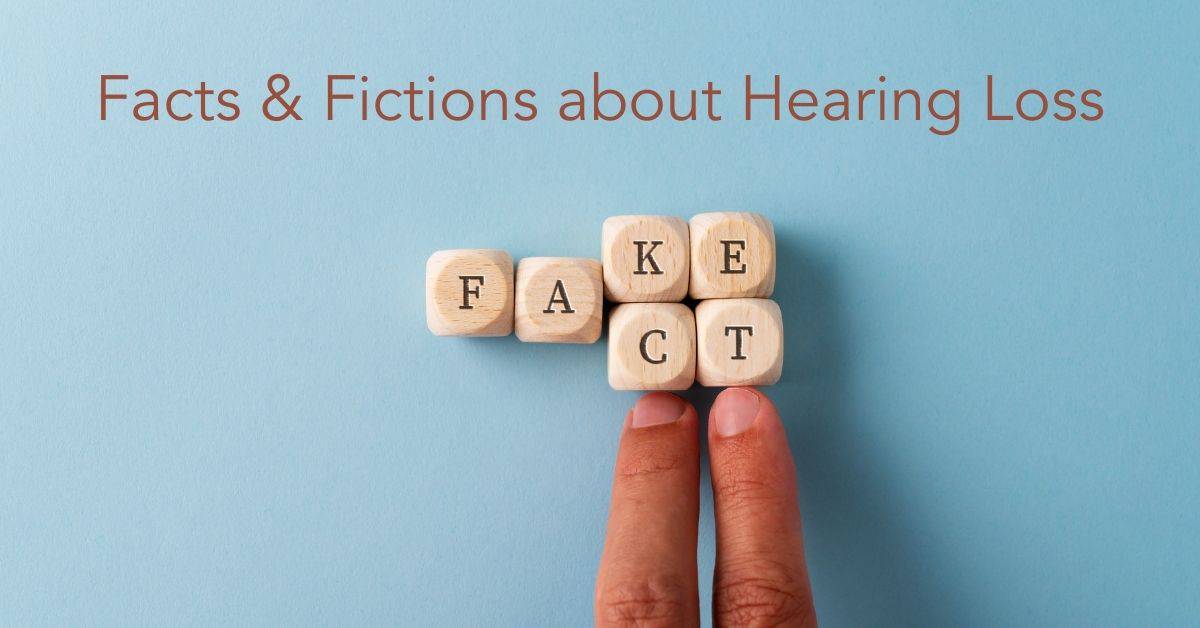- The Connection Between Hearing Loss and Dementia - July 30, 2024
- The Advantages of Rechargeable Hearing Aids - July 16, 2024
- How to Enjoy Music Festivals While Protecting Your Hearing - July 3, 2024
There is a lot of information about hearing loss out there, and it can be hard to navigate through the guidance and recommendations about safe hearing habits. Many that choose not to treat their hearing loss have a wide variety of reasons to do so.
We’re going to address some of them here, and why we think the ideas are misguided.
Fiction # 1: People who don’t work in a noisy environment aren’t in any danger.
Fact: There are plenty of instances outside of a loud work environment where you encounter noise. From the ubiquity of wireless earbuds and personal electronic devices to the noise level you experience on some of your favorite leisure pursuits, noise is everywhere.
Fiction 2: Hearing loss affects only seniors
Fact: You might assume that only seniors have hearing loss and that for a few more years, you won’t have to worry about your hearing. The truth is, hearing loss can affect anyone, and hearing loss associated with age is not the only form of hearing loss you need to be on the lookout for.
Noise-induced Hearing Loss is common in individuals of all ages and is more common than you would think. You’re exposed to loud noises every day, and these noises impair your hearing, whatever your age, whether it’s heavy traffic on your drive to work, screaming fans at a sports game, or a concert by your favorite band. It is estimated by the Center for Disease and Control that 20 percent of adults in their 20s have already impaired their hearing.
Fiction # 3: Doctors are trained to look for hearing loss in their patients.
Fact: While your physician has a wealth of medical information, they are not specialists. If you have hearing loss, they are not likely to notice. Hearing tests are not part of routine checkups, and the doctor’s office is a quiet place. This makes it easier to understand their words, so the physician won’t know that you have hearing loss. For an accurate diagnosis concerning your hearing loss, you need a hearing specialist.
Fiction # 4: Hearing loss is just a nuisance.
Hearing loss is undoubtedly frustrating, but if you’re tempted to resign yourself to it, you’re setting yourself up for a whole host of emotional problems. Whenever you meet your friends for dinner, not interacting effectively will hurt your relationships and leave you exhausted. It contributes to resentment, anxiety, and even depression. Not only that, it has been linked to much faster cognitive impairment and early diagnosis of dementia.
Fiction #5: Hearing loss needs to be severe before hearing aids are required.
Fact: You’re falling prey to one of the greatest fictions about hearing loss if you think your hearing loss isn’t too bad. The truth is, any hearing loss is too much hearing loss, you should get a hearing test as soon as you can. Just because you can get by much of the time doesn’t mean that your hearing loss can be overlooked.
Early detection and intervention are the secrets to effective treatment. The more you live with untreated hearing loss, the worse the hearing loss becomes, and this decline is permanent. There’s no way to get those sounds back, so getting hearing aids as soon as possible is the key to keeping your hearing safe for years to come.
Fiction # 6: Hearing aids don’t work
Fact: The truth is the exact opposite. While some hackneyed stereotypes depict hearing aids as clunky and inefficient, modern hearing aids are discrete microcomputers capable of helping individuals regain most of the hearing they have lost. The majority of hearing aids can be completely concealed behind or inside the ear and are fitted and specifically programmed to suit the user’s specific hearing needs.
Many modern hearing aids can stream audio directly from mobile phones and other digital devices straight into the patient’s ear.
At our practice, the first step towards improved listening is to schedule a hearing test with us. Our team will prescribe the appropriate treatment for your configuration and degree of hearing loss if a condition is found.

